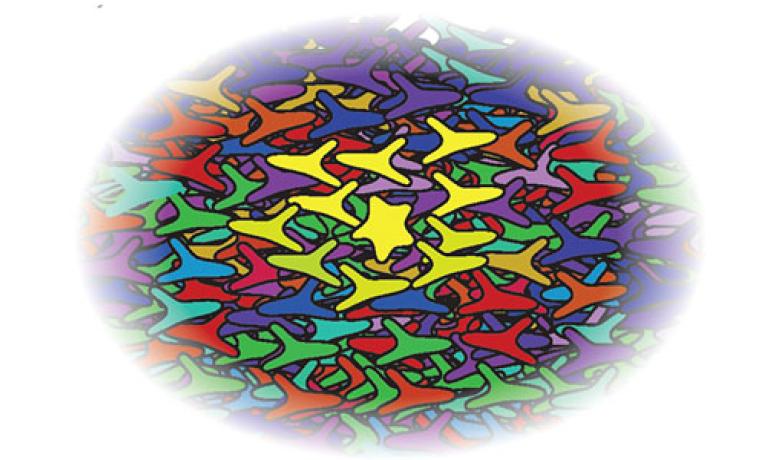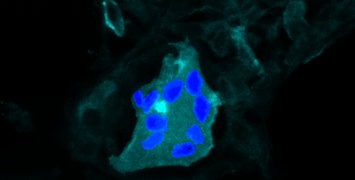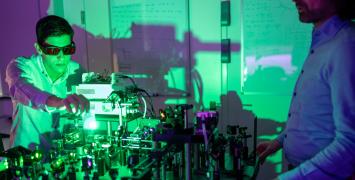Always on call: how does the immune system perform?
Our immune system recognizes and fights infections in a constantly changing environment, where new pathogenic threats emerge. At the crossroad between physics and biology, Prof. Aleksandra Walczak investigates the fascinating process that allows the immune system to be always ready to adapt and evolve to face new dangers.

The role of the immune system is to protect the organism from the many pathogens, such as bacteria, germs, viruses, it constantly encounters. To fulfil this function, it must maintain a diversity of specialized cells, each one targeting a subset of pathogens, including those to which it has never been exposed to. All together, these cells cover an array of potential threats.
The immune system basically relies on B and T cells, which, following maturation in the spleen (B cells) or thymus (T cells), are secreted into the bloodstream. The receptor proteins on the surface of B and T cells interact with pathogens, recognize them and initiate a response. These receptors are generated randomly, yet together form a diverse repertoire that allows the immune system to protect us against a wide range of diseases. This repertoire must adapt to the changing pathogenic environment, maintaining, at the same time, memory of the past infections.
The diversity of the composition of the immune repertoire is a self-organized process, whose nature has not been yet completely unveiled. Applying a combination of data analysis and statistical mechanics modelling, this ERC-funded project focuses on the mechanisms underlying the recognition of pathogens at a molecular and evolutionary level to build new probabilistic and data-driven models.
Recent findings by Prof. Walczak's team, in collaboration with other research groups, suggest that, during pregnancy, twin embryos may exchange T cells through cord blood and that T cell clones produced before birth may persist in the body of a person for about 40 years.
Making advances in the understanding of recognition of potential threats by the immune system will be fundamental for the development of new treatments against allergies and auto-immune diseases.






